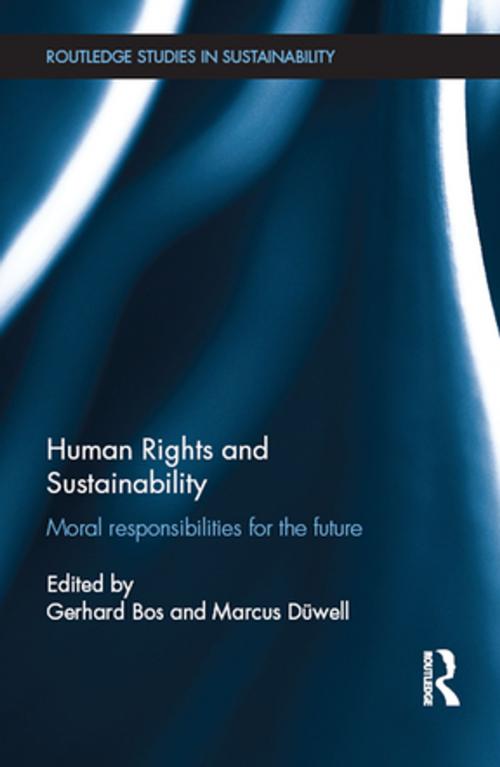Human Rights and Sustainability
Moral responsibilities for the future
Business & Finance, Economics, Sustainable Development, Nonfiction, Social & Cultural Studies, Political Science, Government, Public Policy| Author: | ISBN: | 9781317351764 | |
| Publisher: | Taylor and Francis | Publication: | February 26, 2016 |
| Imprint: | Routledge | Language: | English |
| Author: | |
| ISBN: | 9781317351764 |
| Publisher: | Taylor and Francis |
| Publication: | February 26, 2016 |
| Imprint: | Routledge |
| Language: | English |
The history of human rights suggests that individuals should be empowered in their natural, political, political, social and economic vulnerabilities. States within the international arena hold each other responsible for doing just that and support or interfere where necessary. States are to protect these essential human vulnerabilities, even when this is not a matter of self-interest. This function of human rights is recognized in contexts of intervention, genocide, humanitarian aid and development.
This book develops the idea of environmental obligations as long-term responsibilities in the context of human rights. It proposes that human rights require recognition that, in the face of unsustainable conduct, future human persons are exposed and vulnerable. It explores the obstacles for long-term responsibilities that human rights law provides at the level of international and national law and challenges the question of whether lifestyle restrictions are enforceable in view of liberties and levels of wellbeing typically seen as protected by human rights.
The book will be of interest to postgraduates studying Human Rights, Sustainability, Law and Philosophy.
The history of human rights suggests that individuals should be empowered in their natural, political, political, social and economic vulnerabilities. States within the international arena hold each other responsible for doing just that and support or interfere where necessary. States are to protect these essential human vulnerabilities, even when this is not a matter of self-interest. This function of human rights is recognized in contexts of intervention, genocide, humanitarian aid and development.
This book develops the idea of environmental obligations as long-term responsibilities in the context of human rights. It proposes that human rights require recognition that, in the face of unsustainable conduct, future human persons are exposed and vulnerable. It explores the obstacles for long-term responsibilities that human rights law provides at the level of international and national law and challenges the question of whether lifestyle restrictions are enforceable in view of liberties and levels of wellbeing typically seen as protected by human rights.
The book will be of interest to postgraduates studying Human Rights, Sustainability, Law and Philosophy.















